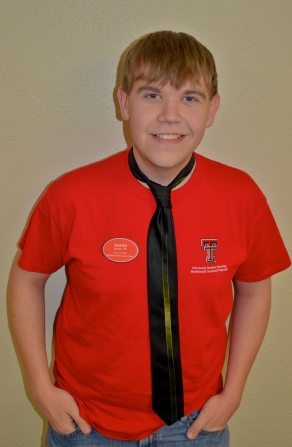By Teri Piearcy
Sometimes a rose by any other name isn’t quite the same rose.
When Austin Tyson heard that Texas Tech University was hosting a TEDx event, he was excited. He said he has watched the popular TED Talk videos online for about a year after a friend turned him on to the program.
“When I heard there was going to be a TED event at Tech, I immediately started looking for a way to apply,” Tyson said.
And he found his idea close to home.
“It was really kind of a life-long type of thing. I’m adopted … but in my family, we don’t use that word,” Tyson said of his background, adding he knew he was adopted but wasn’t labeled as such.
He said he found later that others who had been adopted had different experiences – some where parents chose not to use that label, but outside family did, for example.
Use of the word “adopted” in those cases had a great impact on the people involved, and helped develop his concept on how the act of “naming” something can actually limit that person, place or thing.
His wish for February’s TED Talk is to teach his audience about careful word choice. His example — choosing to call the boss “a jerk” rather than tell someone “we don’t see eye to eye” has connotations for the speaker as well as the listener. Using the latter, more positive, language can change the overall outlook they may have on where they are in life, he said.
“I want them to know how to use naming in such a way as to not feel as stuck in their job, not feel as hopeless,” Tyson added.
“Certain words can impact more than others, even if they are synonymous,” Tyson said. “A lot of people are improperly using naming and do not even realize it.”



